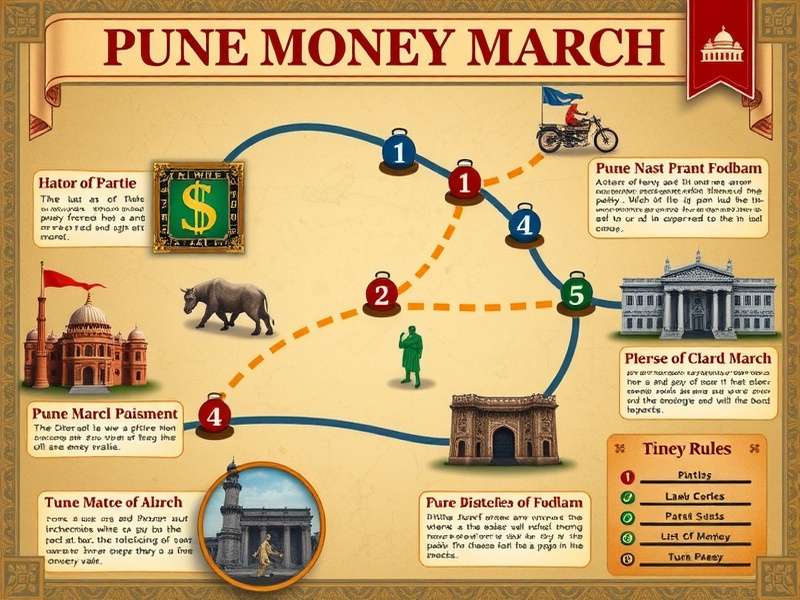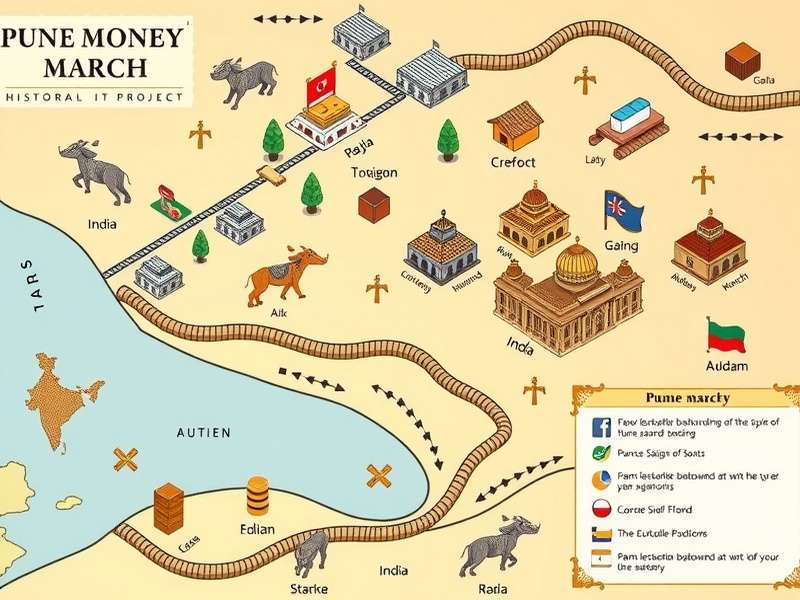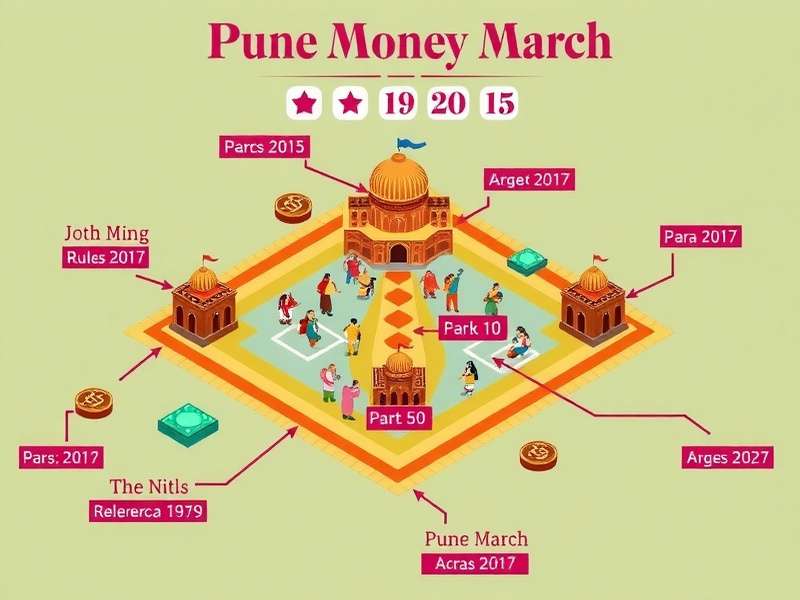Table of Contents
Overview of Pune Money March
Pune Money Marchrepresents one of India's most engaging traditional strategy games that combines financial acumen with tactical decision-making. This game has captivated players across generations with its unique blend of chance and skill elements.
Cognitive Benefits
Playing Pune Money March enhances critical thinking, mathematical skills, and strategic planning abilities. Regular players develop improved financial decision-making capabilities that translate to real-world applications.
The core objective of Pune Money March involves accumulating virtual wealth through a series of calculated moves while navigating various economic scenarios. Players must balance risk and reward throughout the gameplay.

What sets Pune Money March apart from other traditional games is its emphasis on financial literacy and economic principles. The game incorporates real-world financial concepts in an accessible format.
Key Insight:Pune Money March serves as both entertainment and financial education tool, making it uniquely valuable in the landscape of traditional Indian games.
Historical Origins & Evolution
The origins of Pune Money March can be traced back to the early 20th century in the Pune region of Maharashtra. Initially developed as an educational tool for teaching basic financial principles, the game quickly gained popularity for its engaging gameplay.
During the pre-independence era, Pune Money March served as a means of discussing economic concepts without directly addressing the sensitive political climate. The game provided a safe platform for financial discourse.
Evolution Timeline
From its humble beginnings as a regional pastime, Pune Money March has evolved into a nationally recognized game with digital adaptations and competitive tournaments.
The 1970s marked a significant turning point for Pune Money March as it began incorporating modern economic principles. This period saw the introduction of inflation mechanics and investment strategies into the core gameplay.

By the 1990s, Pune Money March had spread beyond Maharashtra to become popular across India. Regional variations emerged, each adding local economic flavors while maintaining the core principles of the original game.
Historical Note:The resilience of Pune Money March through economic changes and technological advancements demonstrates its enduring appeal and adaptability.
The digital revolution of the 21st century brought new life to Pune Money March. Mobile applications and online platforms have introduced the game to younger generations while preserving its traditional essence.
Complete Game Rules & Mechanics
Understanding the rules of Pune Money March is essential for both beginners and experienced players. The game follows a structured yet flexible framework that allows for strategic depth.
Basic Setup
Pune Money March typically requires 2-6 players and uses a specialized board representing various economic sectors. Each player begins with equal resources and the goal is to achieve financial dominance.
Core Mechanics
The game combines dice rolls with card-based economic events, creating a dynamic gameplay experience where players must adapt to changing financial circumstances.
Turn Structure
Each turn in Pune Money March consists of three phases: Income Phase, where players collect resources; Action Phase, where strategic decisions are made; and Event Phase, where economic developments occur.

Resource management forms the backbone of Pune Money March strategy. Players must allocate funds between immediate needs and long-term investments while preparing for unexpected economic events.
Pro Tip:Successful Pune Money March players maintain balanced portfolios and avoid over-specialization in any single economic sector.
Winning Conditions
Victory in Pune Money March can be achieved through multiple pathways: reaching a predetermined wealth threshold, acquiring specific high-value assets, or being the last player solvent after economic downturns.
The game incorporates realistic economic cycles, including periods of growth, stability, recession, and recovery. Understanding these patterns is crucial for long-term success in Pune Money March.
Advanced Winning Strategies
Mastering Pune Money March requires more than just understanding the rules; it demands strategic thinking and adaptability. Successful players employ a combination of conservative and aggressive tactics.
Early Game Strategies
The opening moves in Pune Money March set the foundation for later success. Players should focus on establishing diverse income streams while maintaining liquidity for unexpected opportunities.
Strategic Diversity
Top players of Pune Money March avoid predictable patterns and maintain flexibility in their approach, adapting to both the game state and opponents' strategies.
Risk assessment forms a critical component of Pune Money March strategy. Players must evaluate potential returns against possible losses, considering both immediate and long-term consequences.
Mid-Game Transitions
As Pune Money March progresses, players should shift from foundational development to strategic positioning. This phase often determines the eventual winner through careful resource allocation.
Advanced Technique:Seasoned Pune Money March players use psychological elements, reading opponents' behaviors to anticipate their moves and counter their strategies effectively.
Portfolio management becomes increasingly important in the later stages of Pune Money March. Players must balance stable investments with growth opportunities while maintaining defensive positions.
Endgame Approaches
The final phase of Pune Money March requires precise calculation and timing. Players should identify victory conditions and focus resources on achieving them while disrupting opponents' progress.
Understanding probability and expected value calculations gives players a significant advantage in Pune Money March. These mathematical concepts help in making informed decisions throughout the game.
Cultural Significance & Modern Adaptations
Pune Money March holds a special place in Indian cultural heritage as more than just a game. It represents traditional values of financial prudence, strategic thinking, and community interaction.
The game has been featured in various cultural contexts, from family gatherings to educational institutions. Its ability to bridge generations makes it a valuable cultural artifact.
Social Impact
Pune Money March fosters social connections and intergenerational dialogue about financial matters, creating spaces for knowledge sharing and community building.
In recent years, Pune Money March has experienced a resurgence through digital platforms. Mobile applications have made the game accessible to global audiences while preserving its cultural essence.
Educational Applications
Many educational institutions have incorporated Pune Money March into their curriculum as a tool for teaching financial literacy. The game provides practical understanding of economic concepts.
Cultural Insight:Pune Money March reflects Indian values of careful financial planning and community wealth building, making it both entertaining and culturally significant.
The future of Pune Money March looks promising with ongoing developments in gameplay mechanics and accessibility. New versions continue to emerge while honoring the game's traditional roots.
Competitive Pune Money March tournaments have gained popularity, bringing together enthusiasts from across India and beyond. These events celebrate both skill and cultural heritage.
As we look ahead, Pune Money March continues to evolve while maintaining its core identity. The game's adaptability ensures its relevance for future generations seeking both entertainment and financial education.